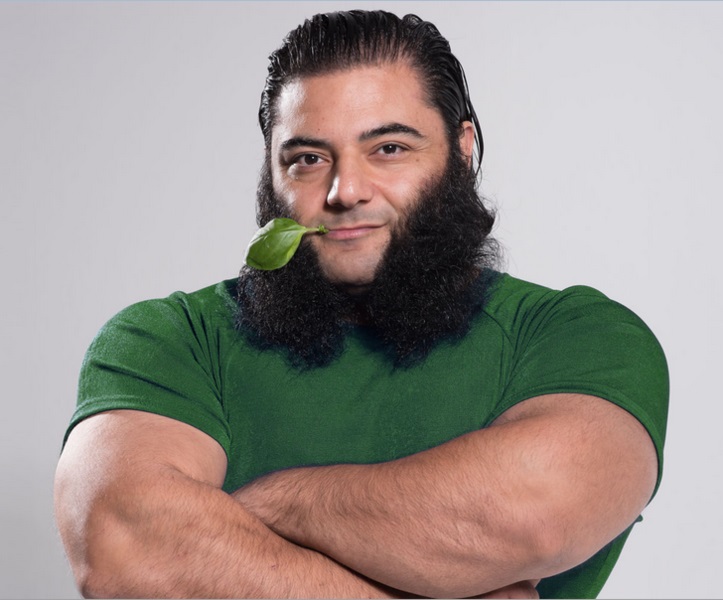Many people think that a vegan diet is lacking in essential nutrients, including protein.
I’m a certified holistic nutritionist myself, and I’ve been eating a vegan and mostly raw foods diet for eight years.
Should I be concerned about low protein intake, and should you be concerned about it too, if you’re eating vegan or considering this diet?
Let’s explore:
First, what do we need protein for?
Protein is required by your body for a whole host of vitally important functions, including:
>> The growth, maintenance, and repair of all cells.
>> The health of your organs, muscles, skin, nails, hair, bones, and teeth.
>> Digestion, metabolism, and the transportation of nutrients in the blood.
>> Healthy immune system function.
>> Creation of enzymes and hormones.
Human beings need to obtain what are termed the “nine essential amino acids” (protein) from the foods that we eat. Amino acids are the building blocks your body uses to make the protein it needs to maintain itself. Your body also has a system by which it can reuse amino acids from the proteins it no longer needs to create new proteins (known as the amino acid pool).
As efficient as this process is, we still need to top up our amino acids with the proteins we get from the foods we eat.
So is it possible to meet all your body’s protein requirements from a plant-based diet?
Well, first off, you don’t actually need big amounts of protein in your diet at all.
Case in point: If larger amounts of protein are needed from the foods that we consume for optimal health, you would rightly expect to see this reflected in human breast milk.
Childhood is the stage of life where we experience the most rapid growth. Yet, children and babies don’t need a large amount of protein to make this growth possible. Interestingly, human breast milk is one of the lowest protein milks in the mammalian world, right along with the milks of many other primates.
On the diet that I follow, I eat fruit for breakfast, a green smoothie for lunch, and more fruit later on before a big vegetable salad for dinner.
For example, one of my favourite breakfast meals is a banana smoothie made from bananas, lettuce, chia seeds, and a Brazil nut.
Here’s what it looks like:
>> ½ cup water
>> 700g of bananas
>> 100g of lettuce
>> 15g of chia seeds
>> 1 x Brazil nut
For my dinner meal, I enjoy a fresh orange juice followed 30 minutes later by a large salad with a nice dressing.
Here’s what my salad looks like:
>> 2 large sized cucumbers made into noodles
>> 300g of chopped lettuce
>> A dressing made with 1 medium mango, 3 medium-sized tomatoes, and 3 sticks of celery all blended together into a smooth, sweet-tasting sauce and poured on top of the chopped lettuce and cucumber noodles.
Overall, I average 45 grams of plant protein per day on an all-vegan diet that’s based on mostly raw fruits, vegetables, and some nuts and seeds.
My weight is 55 kilograms and according to the World Health Organization I should be consuming 44 grams of protein per day, which I can easily meet with my diet.
Once you become an adult, you are not actively growing anymore, and instead, simply maintaining your body without the need to consume high amounts of protein.
Actually, long-term high protein/meat intake is something that people should avoid.
High protein consumption has been associated with many health issues, such as poor kidney function, poor liver function, coronary artery disease, and bone disorders.
So where should you get your protein from?
Studies have found that eating meat increases the work load on the kidneys within hours of consumption, but compared to a plant protein meal the effect on the kidneys is much less. This same effect can be seen with not only meat (like beef), but also tuna fish, eggs, and dairy protein, which all cause a large increase in the workload of the kidneys within a few hours of consumption.
Another study compared the impact a meal of animal protein had on a subject’s kidneys to that of a plant protein meal. It was found that the meal of animal protein caused an inflammatory response in the kidneys when consumed, yet when the plant-based protein was eaten, this spike of inflammation did not appear. The inflammation was brought under control only when a powerful anti-inflammatory drug was used along with the animal protein meal.
The simple and enlightening fact is that you can easily and safely meet all of your body’s protein needs by consuming a healthy, whole foods plant-based diet without the need for any animal products.
Here are some great sources of plant protein:
1. Nuts and seeds.
These are the highest sources of protein on a plant diet and packed full of nutrition. Some of the best sources include:
>> Pumpkin seeds
>> Almonds
>> Pistachios
>> Sunflower seeds
>> Flax seeds
2. Legumes.
In second place for the amount of protein content are cooked legumes, including:
>> Lentils
>> Winged beans
>> Split peas
>> Mung beans
3. Vegetables.
In third place and packed full of many other health-boosting nutrients are vegetables, including:
>> Sprouted beans, peas, and lentils
>> Peas
>> Kale
>> Broccoli
4. Fruits.
Fruits also contain good amounts of protein and a wealth of other health-boosting nutrients. Here are some of the fruits high in protein:
>> Guavas
>> Avocado
>> Mulberries
>> Blackberries
>> Apricots
Of course, these foods are just a small selection of what’s available when you eat a diet that is full of whole plant foods.
So if you make sure to eat enough calories every day to fulfill your body’s needs, and eat a variety of plant foods, you can rest assured that you’ll be meeting your body’s protein needs.
Enjoy eating plants!
~
Author: Yulia Tarbath
Image: Wikimedia Commons
Editor: Catherine Monkman







Read 1 comment and reply